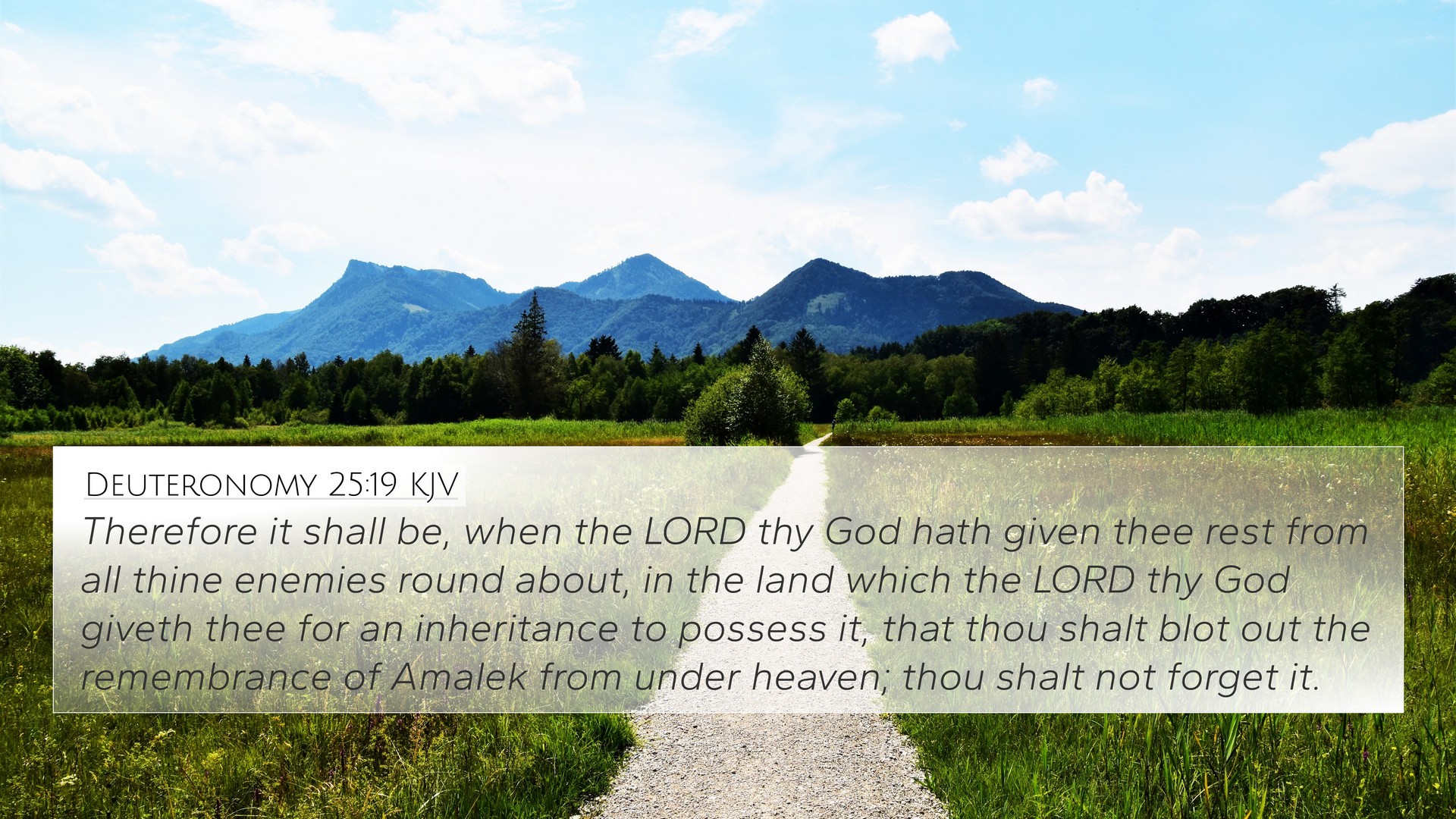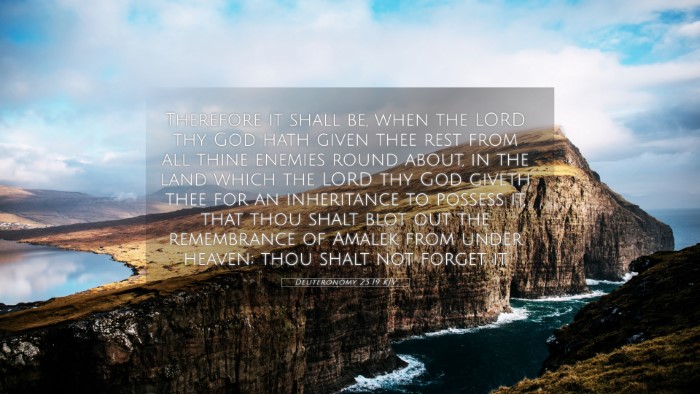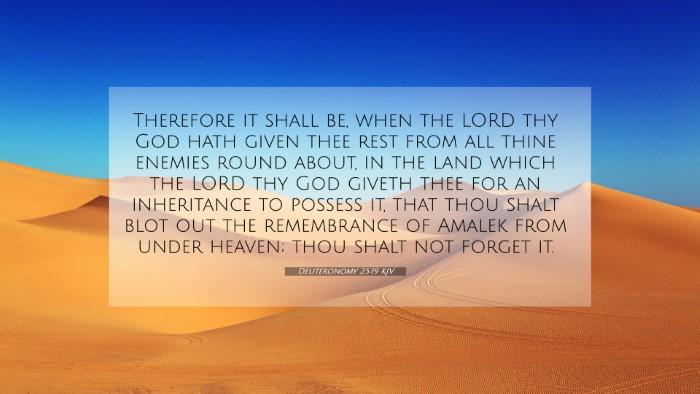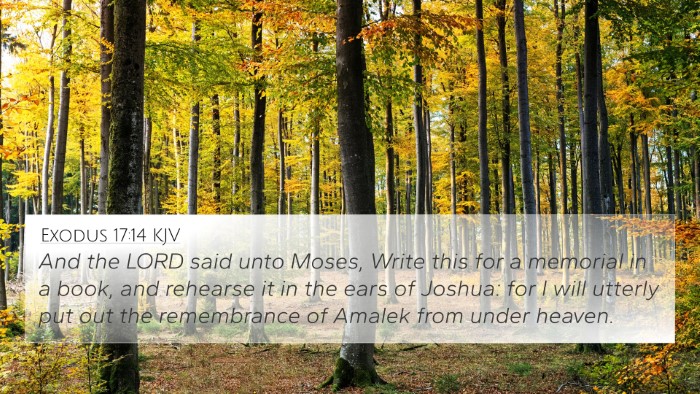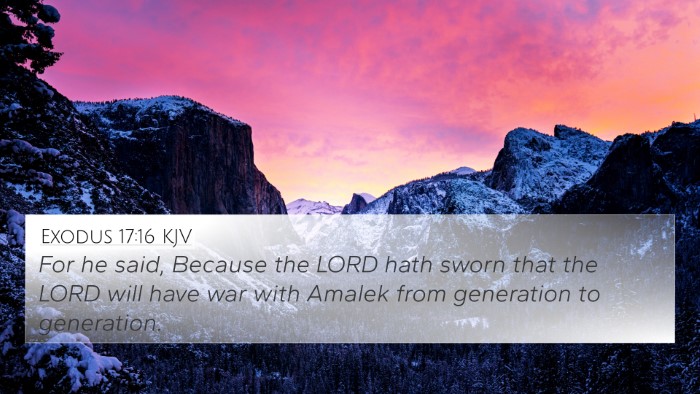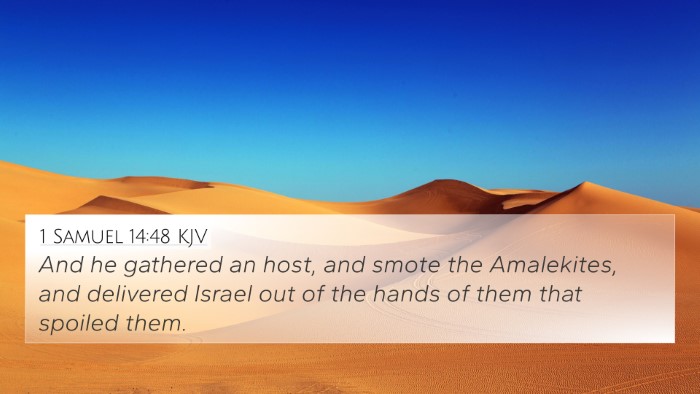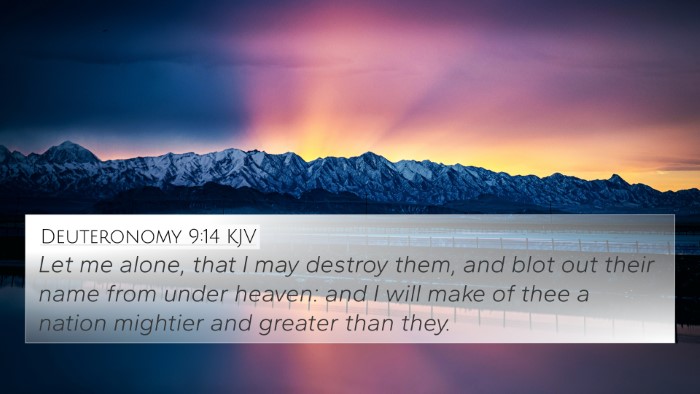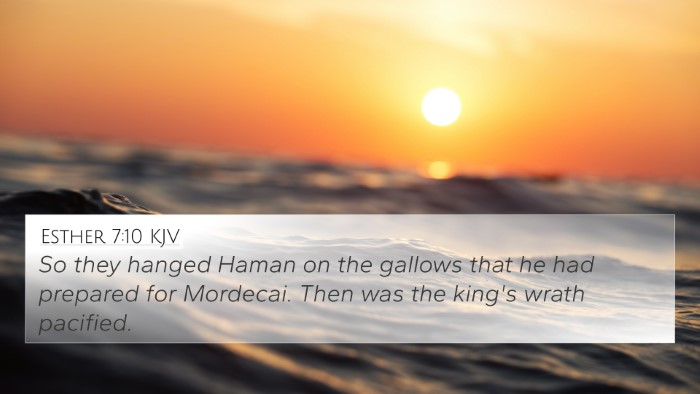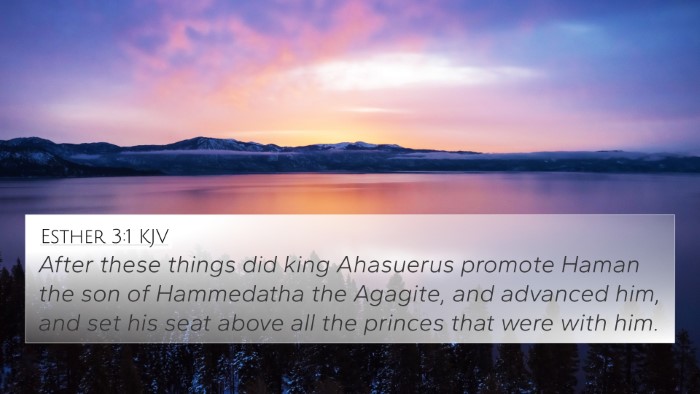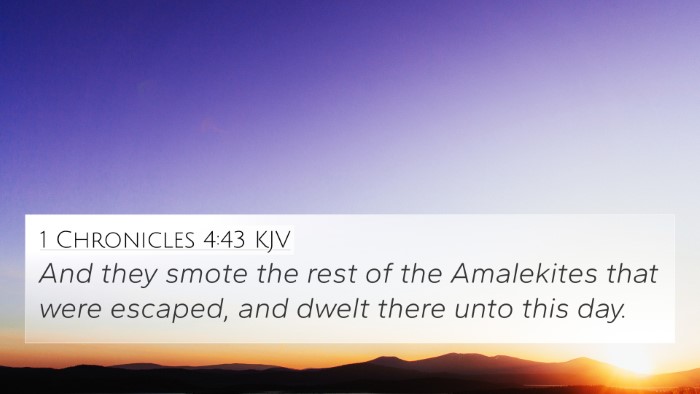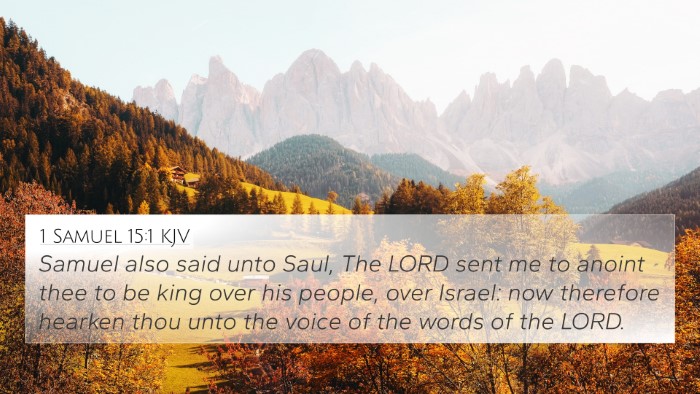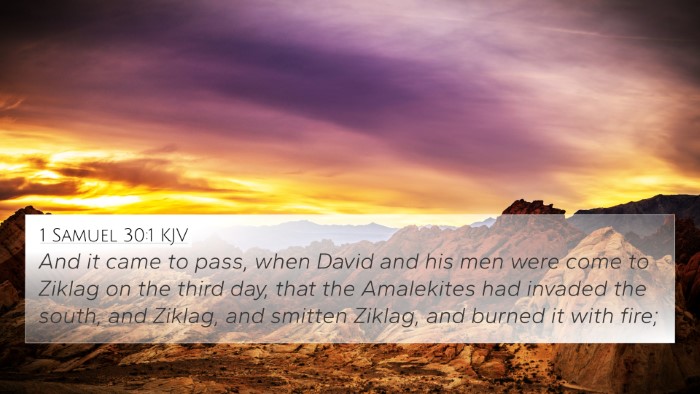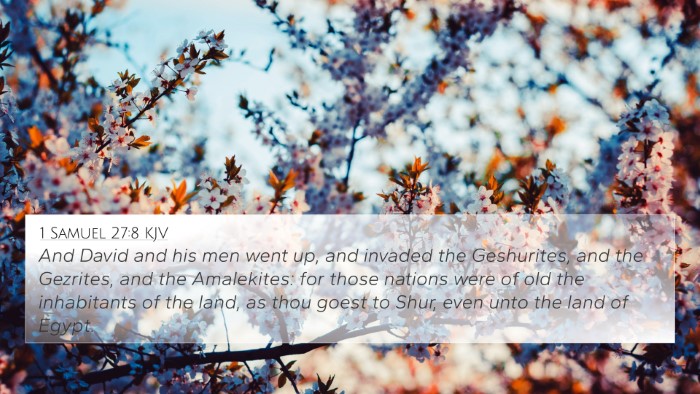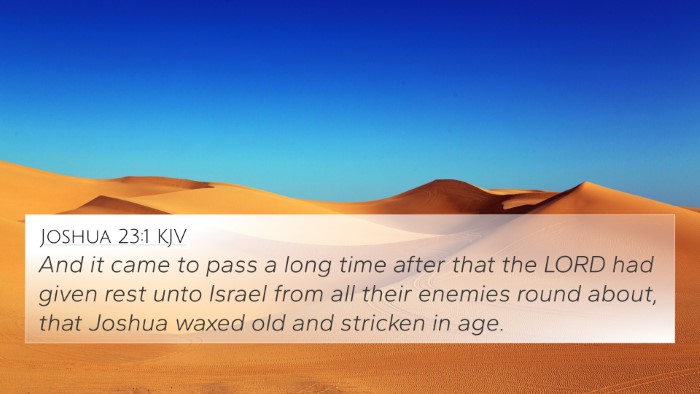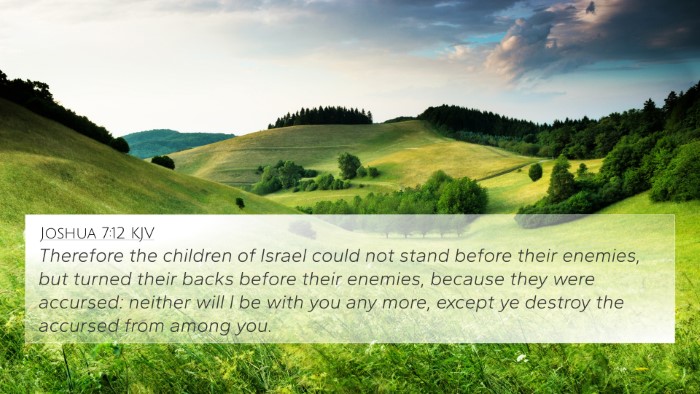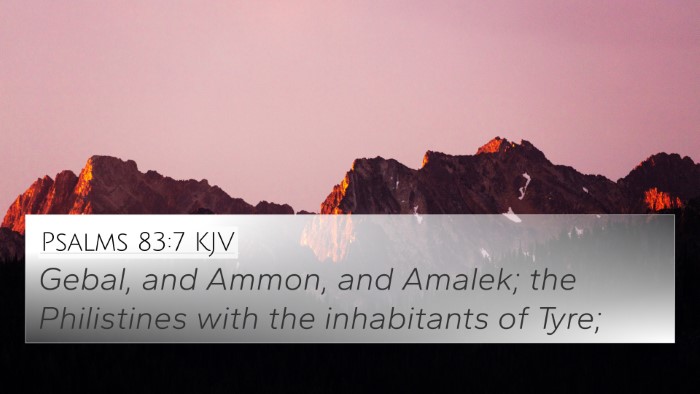Understanding Deuteronomy 25:19
Deuteronomy 25:19 states, "Therefore it shall be, when the Lord your God has given you rest from your enemies all around,
in the land which the Lord your God is giving you to possess as an inheritance, that you will blot out the remembrance
of Amalek from under heaven. You shall not forget."
Summary of the Verse Meaning
This verse emphasizes the imperative nature of remembering and executing God's justice against the Amalekites,
who attacked the Israelites when they were weary and vulnerable. It highlights the severity of forgetting
past injustices and implies that God desires His people to remember their past victories and defeats,
ensuring that they remain vigilant against their enemies.
Key Themes and Insights from Commentaries
-
Matthew Henry:
Henry emphasizes that the command to blot out Amalek serves as a reminder of the ongoing struggle between
the people of God and their enemies. He suggests that this verse not only relates to physical battles but also
symbolizes the spiritual battles believers face. The call to remember is central, as it allows believers
to learn from history and remain steadfast in their faith and mission.
-
Albert Barnes:
Barnes notes that the memory of past transgressions is crucial for maintaining justice; he connects this
idea with the historical context of Amalek's attack. Barnes explains that by remembering the acts of Amalek,
the Israelites commit to their covenant with God by preserving justice and acting against those who oppose
God’s will.
-
Adam Clarke:
Clarke interprets the verse as a significant moral teaching, highlighting that this instruction also
serves as a warning for future generations. He points out that the Amalekites represent a persistent
sin that can attack at times of weakness, and the need for remembrance reflects the importance of safeguarding
against moral decline.
Related Bible Cross-References
-
Exodus 17:14-16: "Then the LORD said to Moses, 'Write this for a memorial in the book and
recount it in the hearing of Joshua, that I will utterly blot out the remembrance of Amalek from under heaven.'"
-
1 Samuel 15:2-3: "Thus says the LORD of hosts: 'I remember what Amalek did to Israel,
how he ambushed him on the way when he came up from Egypt. Now go, and attack Amalek, and utterly destroy all
that they have, and do not spare them...'"
-
Psalm 83:2-4: "For behold, Your enemies make a tumult; and those who hate You have lifted up
their head. They have taken crafty counsel against Your people, and consulted together against Your sheltered ones."
-
1 Chronicles 4:43: "They attacked the remnant of the Amalekites who had escaped, and they have
lived there to this day."
-
Micah 5:15: "And I will execute vengeance in anger and fury on the nations that have not heard."
-
Deuteronomy 7:1-2: "When the LORD your God brings you into the land which you go to possess,
and has cast out many nations before you... you shall conquer them and utterly destroy them."
-
Numbers 24:20: "Then he looked on Amalek, and took up his oracle and said: 'Amalek was first among
the nations, but shall be last until he perishes.'"
Connections and Interpretation
The contextual understanding of Deuteronomy 25:19 lies in recognizing its place within the broader narrative of the
Exodus and Israel's formation as a nation chosen by God. There are strong thematic connections between this verse and
various other scriptures that relate to God's covenant, justice, and the call for holiness among His people. Each cross-reference
serves to reinforce the significance of obedience to God's commands and the continuous struggle against those who oppose
His will. This links to an overarching theme where the remembrance of past conflicts serves not just as historical recounting,
but as imperative learning for future generations.
Tools for Cross-Referencing and Study
Engaging with cross-references enriches one's understanding of scripture. Tools for Bible cross-referencing, such as
concordances and cross-reference guides, are essential for a deeper study. By identifying connections between verses with
the use of a Bible cross-reference system, one can uncover profound insights that aid in spiritual growth and comprehension.
Utilizing a Bible concordance is a practical way to find links between verses and themes.
Conclusion
Deuteronomy 25:19 serves as a powerful reminder of God's desire for justice, remembrance, and moral vigilance. It invites believers
to reflect on their history, learn from past confrontations with sin, and remain steadfast in their commitment to God's righteousness.
As Christians delve into the rich depths of scripture, employing tools for Bible cross-referencing can shine light on thematic connections and
enhance the understanding of their faith journey.
